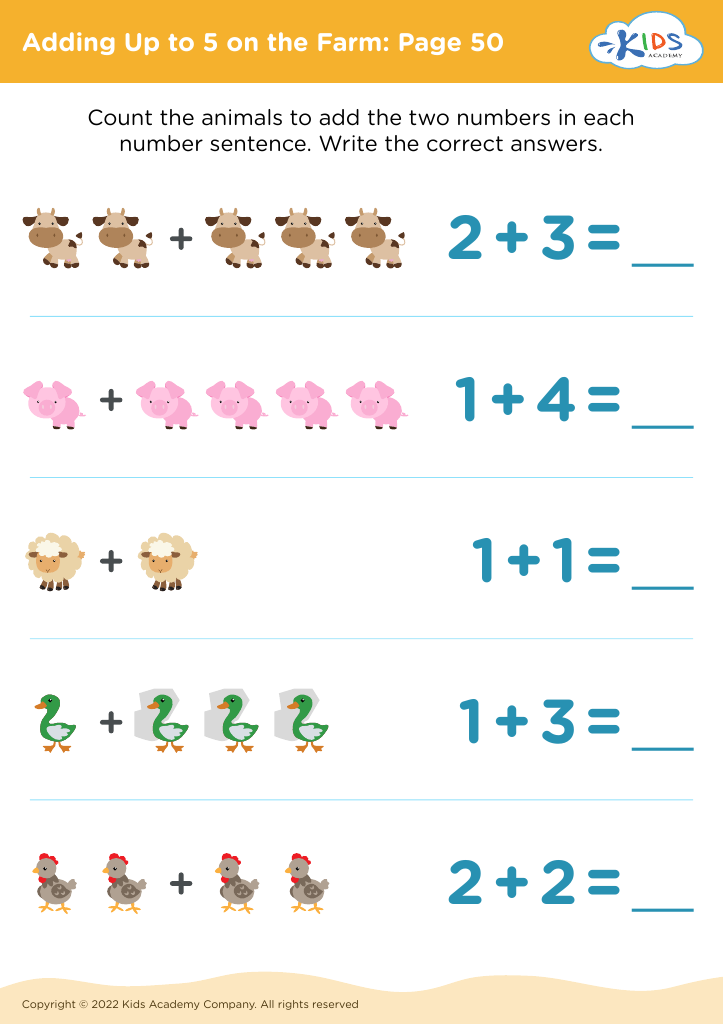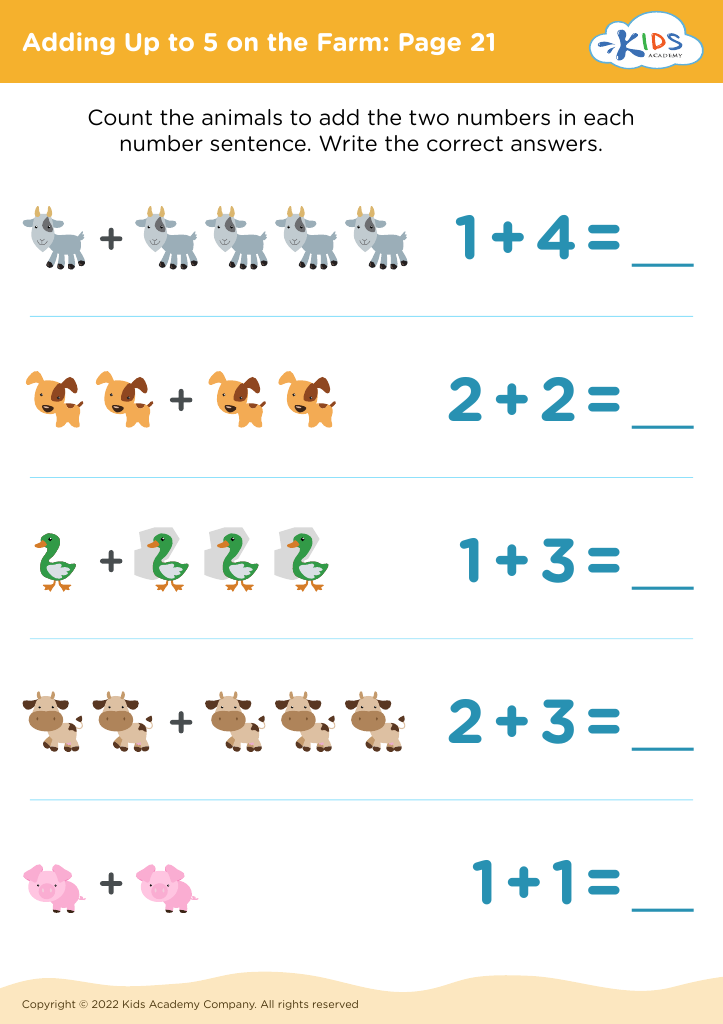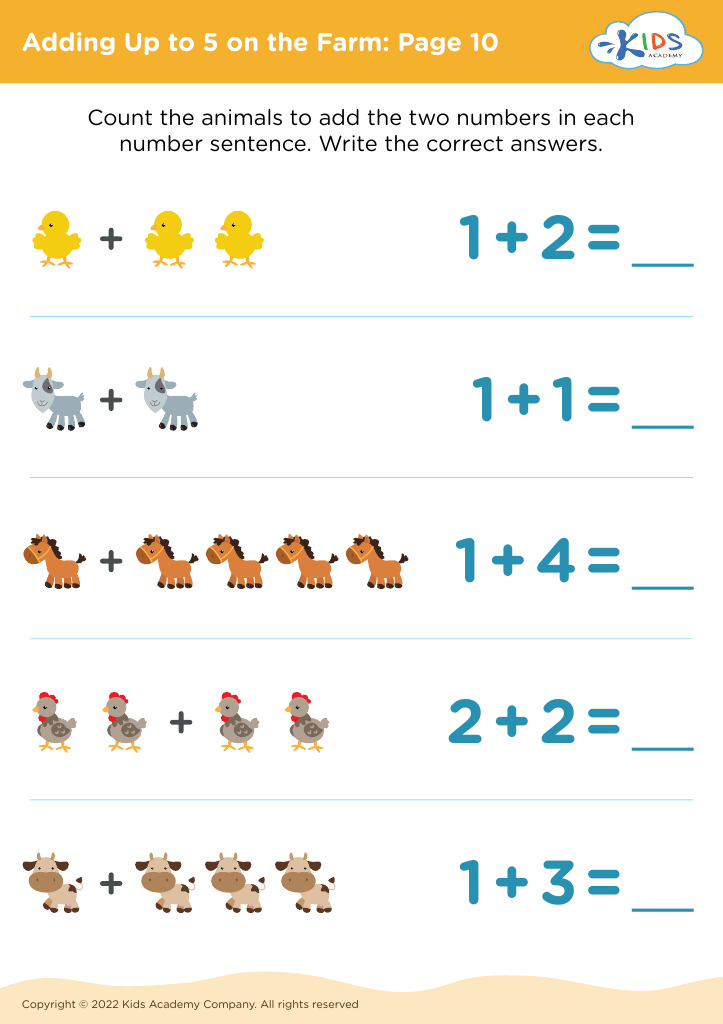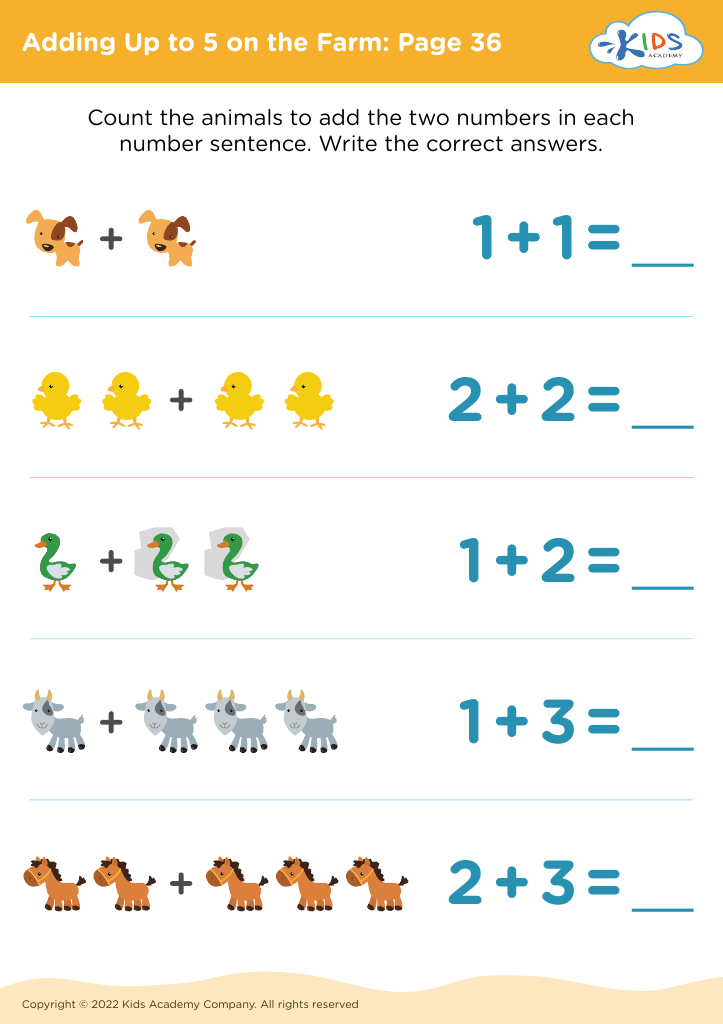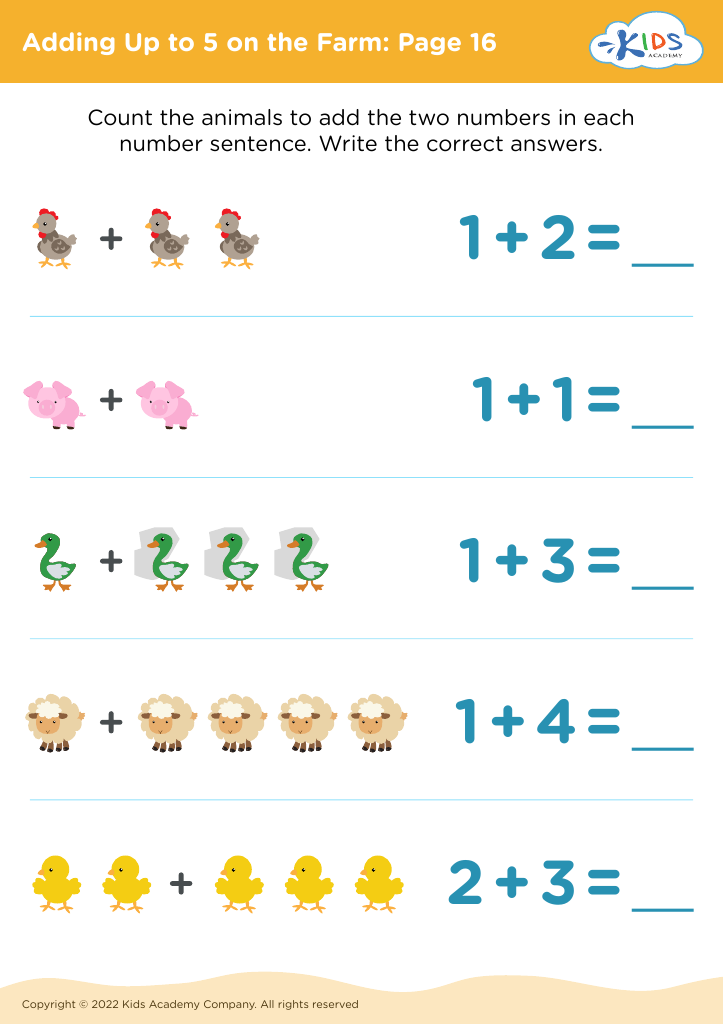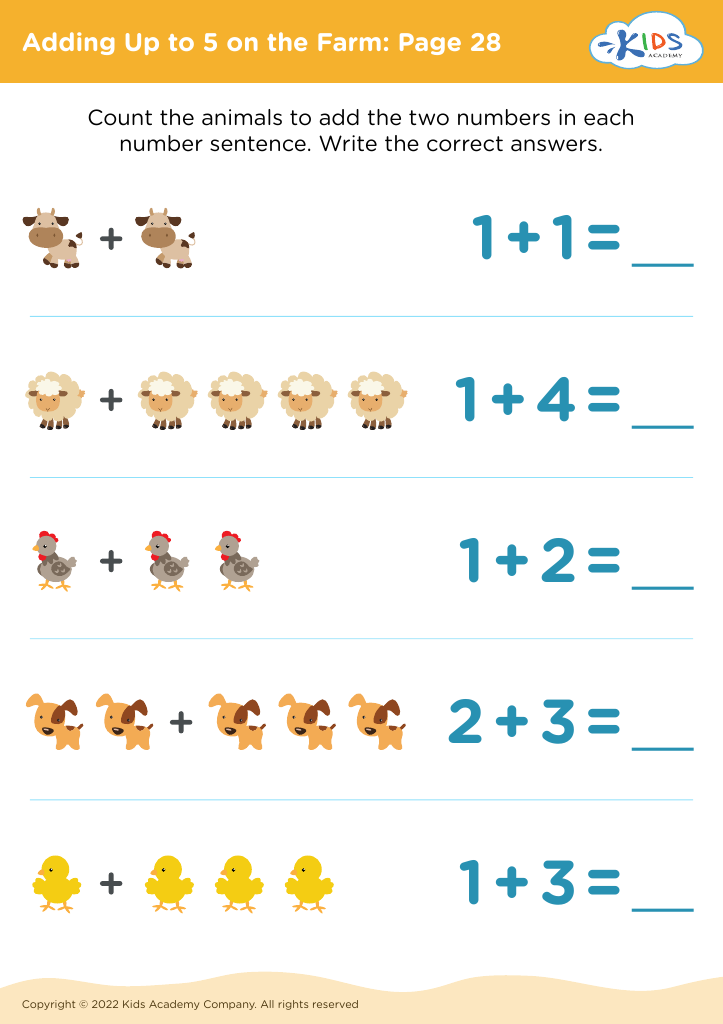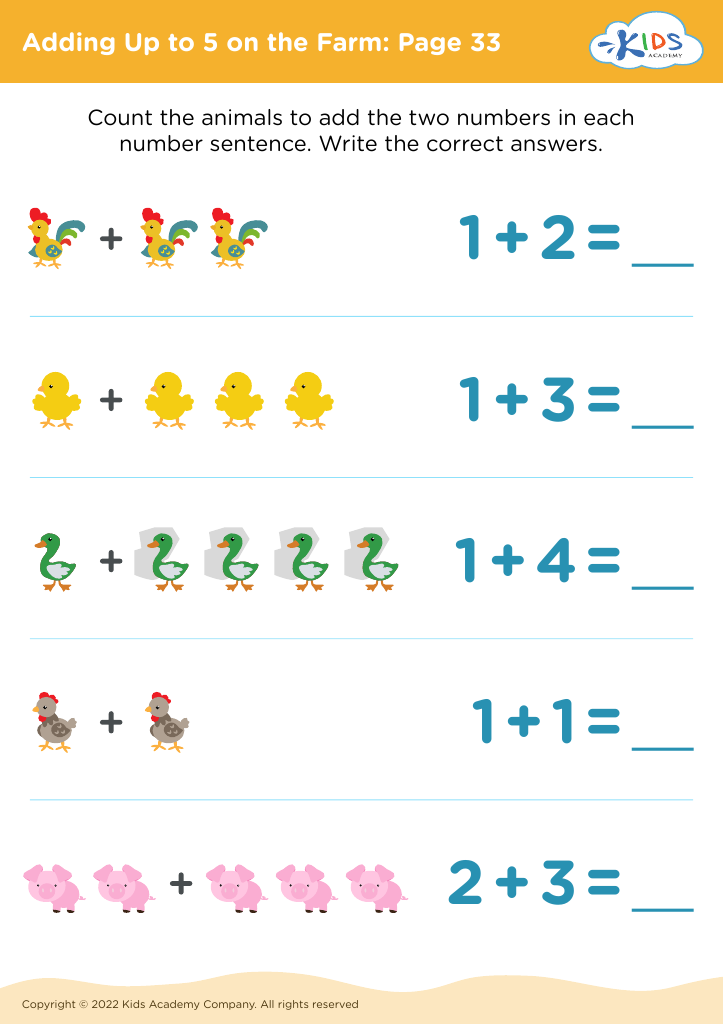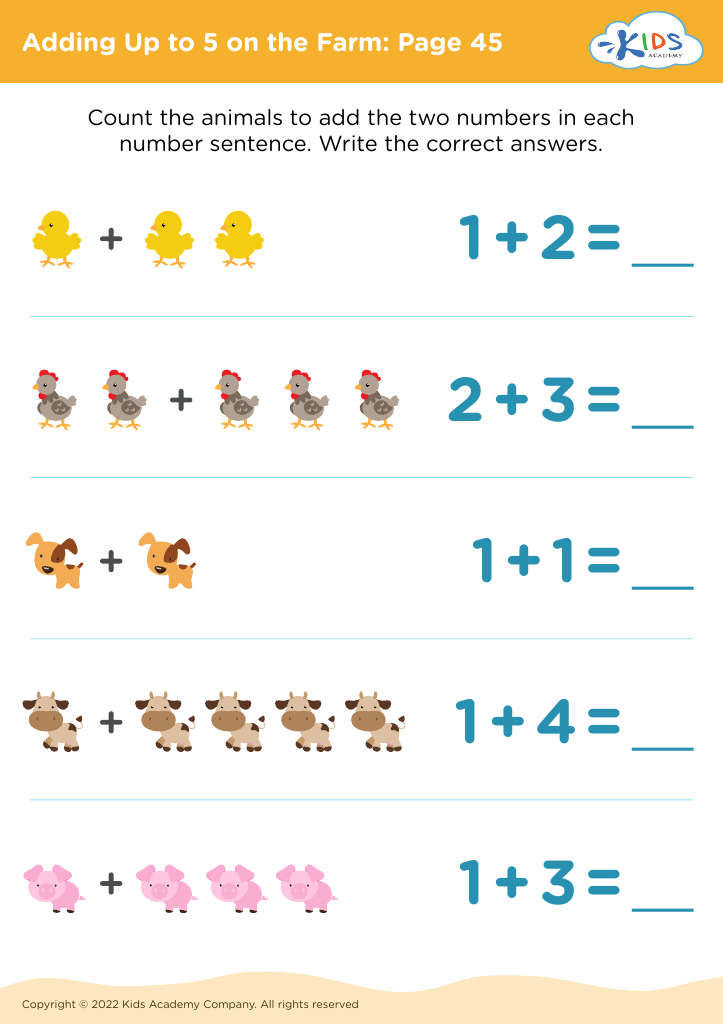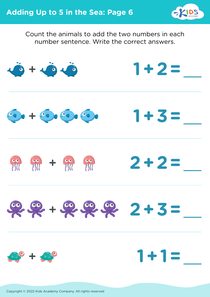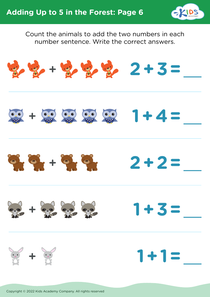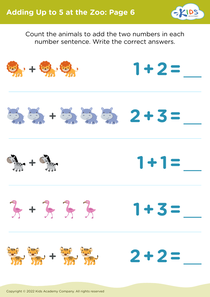Problem-Solving Skills Adding on the Farm Worksheets for Ages 3-8
8 filtered results
-
From - To
Unlock your child’s potential with our "Problem-Solving Skills Adding on the Farm Worksheets," designed for ages 3-8. These engaging, farm-themed worksheets are the perfect blend of education and fun, providing a rich environment for developing essential problem-solving skills. Young learners will enjoy practicing addition as they help friendly farm animals and navigate through delightful farm scenarios. With adorable illustrations and scaffolded challenges, these worksheets are tailored to enhance mathematical thinking and boost confidence in young mathematicians. Start your child’s learning journey today with interactive, hands-on activities that make math meaningful and exciting on the farm!
Problem-solving skills are essential for young children, particularly in engaging, real-world contexts like farming, where abstract concepts become tangible. Teaching children ages 3-8 about problem-solving through farm-related activities integrates several crucial developmental benefits.
Firstly, it enhances critical thinking. When children figure out how to distribute apples evenly among baskets or navigate puzzles about animal care, they develop skills in reasoning and planning. This kind of mental exercise is foundational for success in both mathematical concepts and everyday decision-making later in life.
Secondly, farm activities often involve hands-on learning, which is particularly effective for young minds. Interactive tasks, such as counting eggs or differentiating animals by size, engage multiple senses and learning styles, better reinforcing concepts and improving memory retention.
Thirdly, problem-solving in farming activities promotes language development. As children articulate their thought processes—explaining how they divided food among pigs or sorted vegetables—they build vocabulary and improve communication skills.
Moreover, such context-specific learning fosters emotional and social skills. Working on farm problems with peers teaches collaboration, tolerance, and sharing. And when children successfully solve problems, they experience a sense of achievement that boosts their confidence and motivates continued learning.
In conclusion, integrating problem-solving skills into farm-related activities for young children lays a robust foundation for cognitive, linguistic, and socio-emotional development, equipping them for future academic and life challenges.
